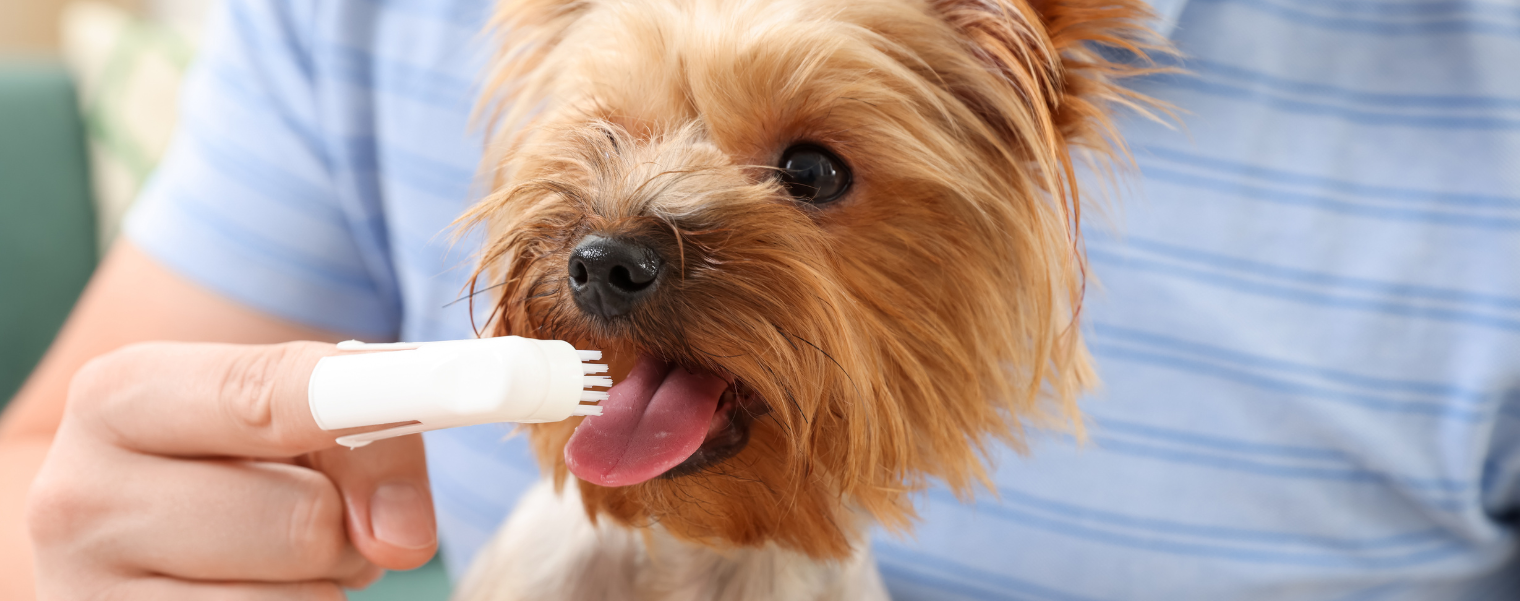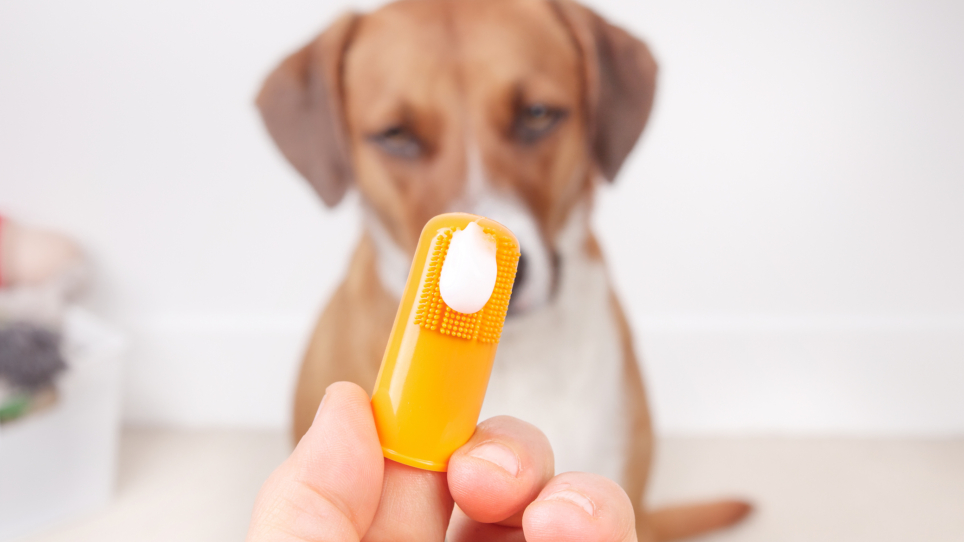Like humans, if your dog’s teeth aren’t properly cared for it can start to cause problems. Dental problems like gingivitis, gum disease, bad breath and tooth decay are all common problems for dogs whose teeth aren’t regularly cleaned. These problems can make it so difficult for your dog to eat they will stop eating and can impact their overall quality of life.
Before your dog’s teeth get this bad, they will experience a buildup of plaque. Taking measures to keep your dog’s teeth clean and remove plaque is the best way to prevent dental problems.
How to keep your dog’s teeth clean
Brushing their teeth
One of the best things you can do to prevent issues with your dog’s teeth is brush them every day. Brushing their teeth is essential for removing plaque and preventing gingivitis and gum disease. It’s important not to use human toothpaste to brush your dog’s teeth as this can cause stomach irritation. Instead, you can buy pet toothpaste as well as pet toothbrushes from most pet shops.
Dental chews
Dental chews are designed to scrape plaque off your dog’s teeth as they chew. Although not as effective as brushing their teeth, giving your dog dental chews is another method of maintaining their dental health. If you choose to give your dog a dental chew, we recommend avoiding hard chews and bones as these can wear down your dog’s teeth and even break them. It’s important to remember there is risk of choking on chews and sharp bones, which can cause internal organ injuries if chewed up, broken off and eaten. It's also important to remember dental chews can be high in calories so make sure you reduce your dog’s regular food intake accordingly if you give your dog a dental chew.

How to brush your dog’s teeth
Getting your pet accustomed to having their teeth brushed is a gradual process. Older dogs may take longer to become accustomed with having their teeth brushed, so we recommend starting as early as possible. When beginning to brush your dog’s teeth, slowly train them to accept the process by using positive reinforcement. We recommend doing it in stages such as getting them accustomed to having your fingers near and in their mouth, and then getting them accustomed to the smell and taste of pet toothpaste. We’ve mapped out the stages below -
Stage 1: If your dog isn’t used to your hand being near their mouth, you can accustom them by gently stroking their cheeks and doing this a few times over the course of a few days.
Stage 2: Once they’ve gotten used to this, you can add some toothpaste to the tip of your finger and allow them to lick it off. If they enjoy it, start to run your finger along the inside of their mouth along the gum line.
Stage 3: After they have gotten used to this, introduce them to the toothbrush. Don’t try and put it in their mouth just yet – first let them sniff it and then add some toothpaste to it so they can lick it off.
Stage 4: Once they’re comfortable with the toothbrush, you can try gently brushing their front teeth in round motions, stopping regularly to allow them to lick the yummy toothpaste. This is a reward for them letting you brush their teeth.
Stage 5: If they are happy with their front teeth being brushed, you can slowly do their back teeth as well, using the stop/start method.
While your dog is getting accustomed to having their teeth brushed, keep the sessions short and make sure your dog is comfortable and relaxed. Please be patient during this process – it can take weeks before your dog will let you clean their teeth without much fuss. If it looks like your dog’s teeth have a large amount of plaque on them, or their gums are inflamed, it’s best to take them to the vet as brushing their teeth could be painful for them. Signs that your dog has a build-up of plaque are bad breath, red and inflamed gums or a grey-brown coating on their teeth.
By getting your dog accustomed to having their teeth brushed and keeping their teeth clean, you’re significantly decreasing the likeliness of them experiencing dental problems and living a lower quality of life. For more ways to prevent your dog from health issues, head to our blog 5 things you can do to prevent your pet from having health issues.
